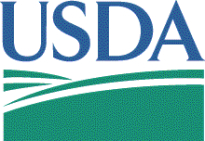Americans want to know where their food comes from and now, thanks to the U.S. Department of Agriculture’s (USDA’s) final ruling on Country of Origin Labeling (COOL), they’ll have a lot more information. The new rule eliminates the vagaries of current labels, such as “mixed origin” and provides consumers with the country where the animal was born, raised and slaughtered.
 The Farm Security and Rural Investment Act of 2002 and the Food, Conservation and Energy Act of 2008 required retailers to tell customers the country of origin of meats, poultry, vegetables, fruits, and some nuts. When the USDA implemented that rule in 2008 Canada and Mexico objected calling the COOL law a barrier to trade and brought their grievance to the World Trade Organization (WTO).
The Farm Security and Rural Investment Act of 2002 and the Food, Conservation and Energy Act of 2008 required retailers to tell customers the country of origin of meats, poultry, vegetables, fruits, and some nuts. When the USDA implemented that rule in 2008 Canada and Mexico objected calling the COOL law a barrier to trade and brought their grievance to the World Trade Organization (WTO).
The WTO ruled that the U.S. had the right to require COOL, but that, for imported meat, the labeling created costs that likely exceeded consumer benefit because of the limited and confusing information COOL provided. The WTO set a deadline of May 23, 2013 for the U.S. to comply with its decision.
The USDA’s response was to change the labels to make them useful to consumers. So, rather than a label that reads “mixed origin” a cut of meat from animal that wasn’t born, raised and slaughtered in the same country will now tell where each of those steps happened “born and raised in Canada, slaughtered in the U.S.,” for example.
Canada has been vocal about its contempt for this idea. Agriculture Minister Gerry Ritz said retaliatory measures including sanctions would be considered if the ruling was finalized.
Cattle producers in the U.S. are also unhappy about the ruling. In a statement released in response to the final rule National Cattlemen’s Beef Association President Scott George said: “We are deeply disappointed with this short-sighted action by the USDA. Our largest trading partners have already said that these provisions will not bring the United States into compliance with our WTO obligations and will result in increased discrimination against imported products and in turn retaliatory tariffs or other authorized trade sanctions. As we said in comments submitted to USDA, ‘any retaliation against U.S. beef would be devastating for our producers.’ While trying to make an untenable mandate fit with our international trade obligations, USDA chose to set up U.S. cattle producers for financial losses. Moreover, this rule will place a greater record-keeping burden on producers, feeders and processors through the born, raised and harvested label.”
But consumers will cheer the ruling. According to a recent poll, 90 percent of consumers surveyed favor such labeling. “There is overwhelming consumer support for country of origin labels and a growing interest by consumers in knowing the source of their food,” said Wenonah Hauter, Executive Director of Food & Water Watch in a statement about the ruling. “People have the right to know where the food they feed their families comes from. USDA’s new COOL rules significantly improve the disclosure of information to consumers.”




